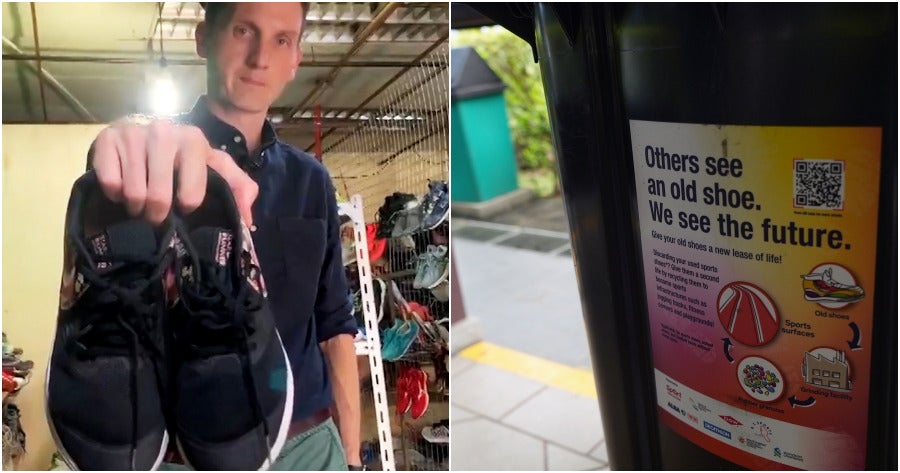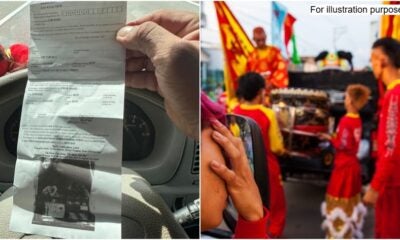A Reuters investigation has raised serious questions about a shoe recycling programme launched by American chemical company Dow in partnership with the Singapore government, which aims to recycle the rubberised soles and midsoles of donated shoes to build new playgrounds and running tracks in Singapore.
The Reuters investigation, which was published on Sunday (26 February), comes as environmental groups claim that chemical companies are making exaggerated or false claims about recycling.
In 2020, the National sports agency Sport Singapore (SportSG) announced a partnership with Dow, a major producer of chemicals, to transform shoes contributed by members of the community into jogging tracks, fitness corners, and playgrounds.
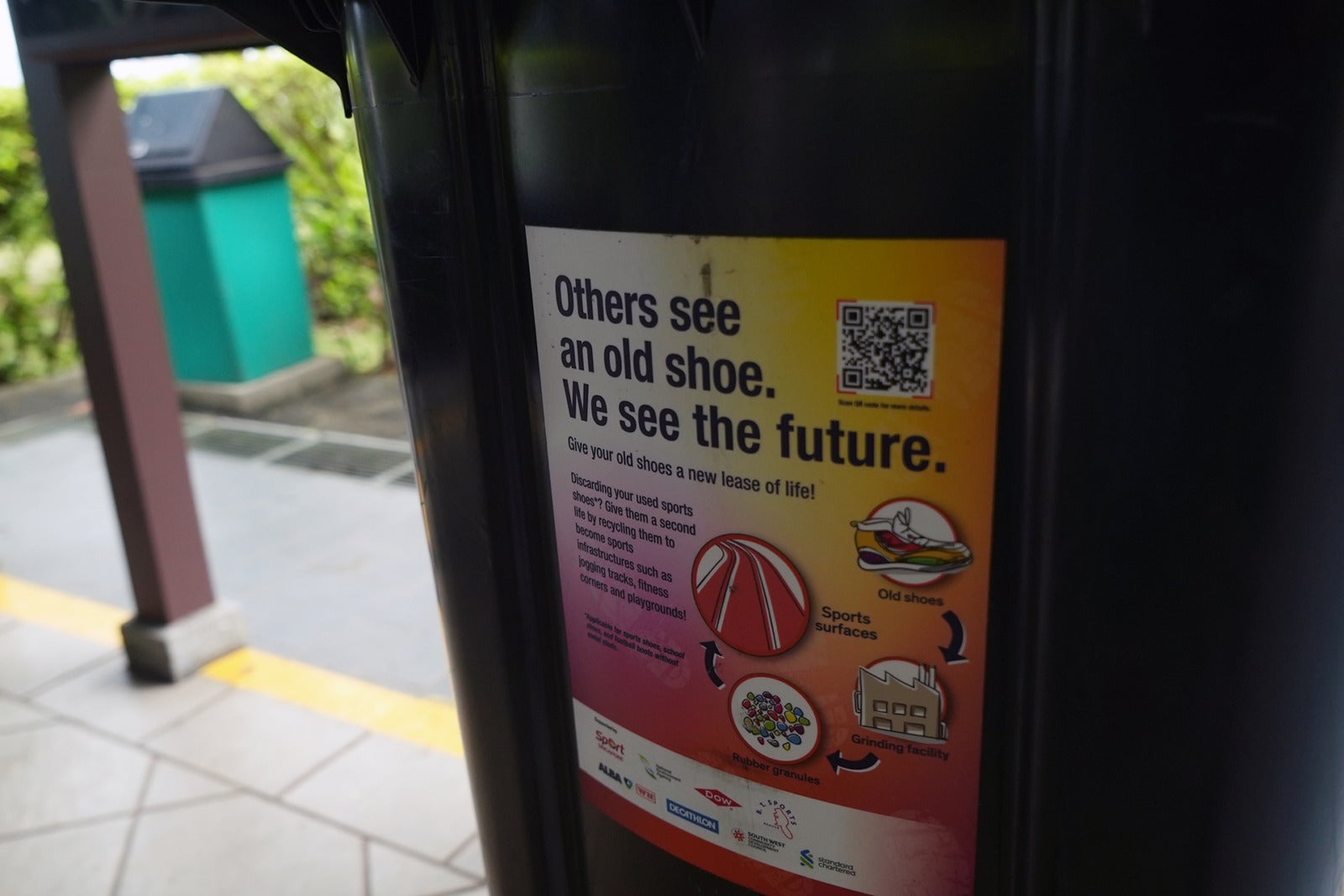
The ‘Others see an old shoe. We see the future.’ project aims to recycle 300,000 pairs of used sports shoes and divert them away from the landfill. Initially, the project was meant to run for only 3 years but was turned into a permanent used shoes collection drive in 2021.
Reuters placed GPS trackers in 11 pairs of shoes and deposited them in donation bins around Singapore over a six-month period.
All the footwear was placed in different donation barrels around Singapore between 14 July and 9 September last year.
However, none of these shoes were ultimately turned into exercise paths or children’s parks in Singapore as promised.
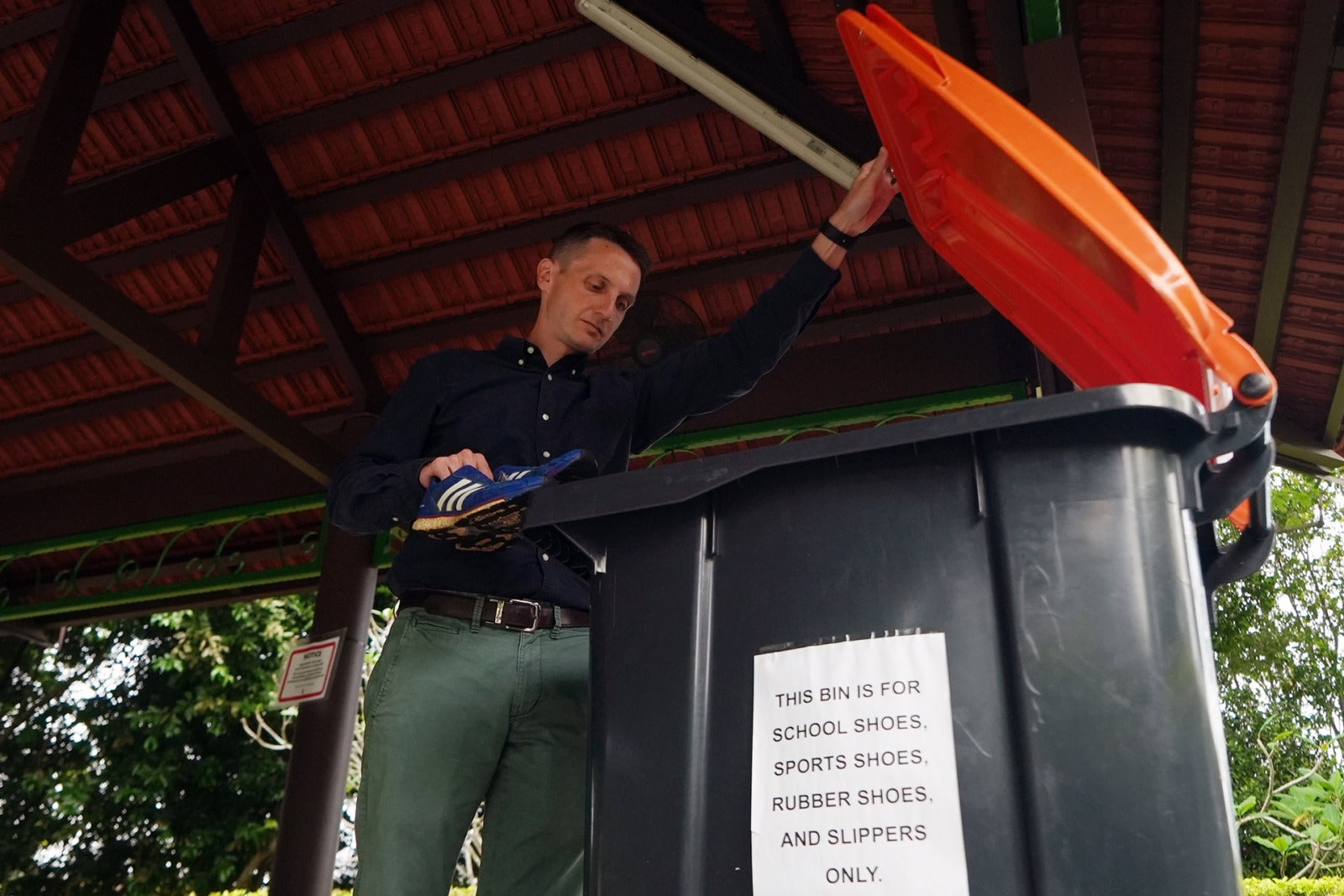
Instead, nearly all of them ended up in the hands of Yok Impex, a Singaporean second-hand goods exporter, which was hired by a waste management company involved in the recycling programme to retrieve shoes from donation bins for delivery to the company’s local warehouse.
According to the Reuters report, the tracking data showed that the shoes had been shipped across the Singapore Strait to Batam Island, then on to Jakarta, Indonesia’s capital, and other parts of the country, where they were sold in second-hand clothing shops.
Reuters journalists were able to recover 3 pairs of shoes from crowded bazaars in Jakarta and Batam. The other pairs ended up in locations in Indonesia that were too remote for Reuters to track down in person. In three cases, the GPS trackers stopped sending signals after they reached Indonesia.
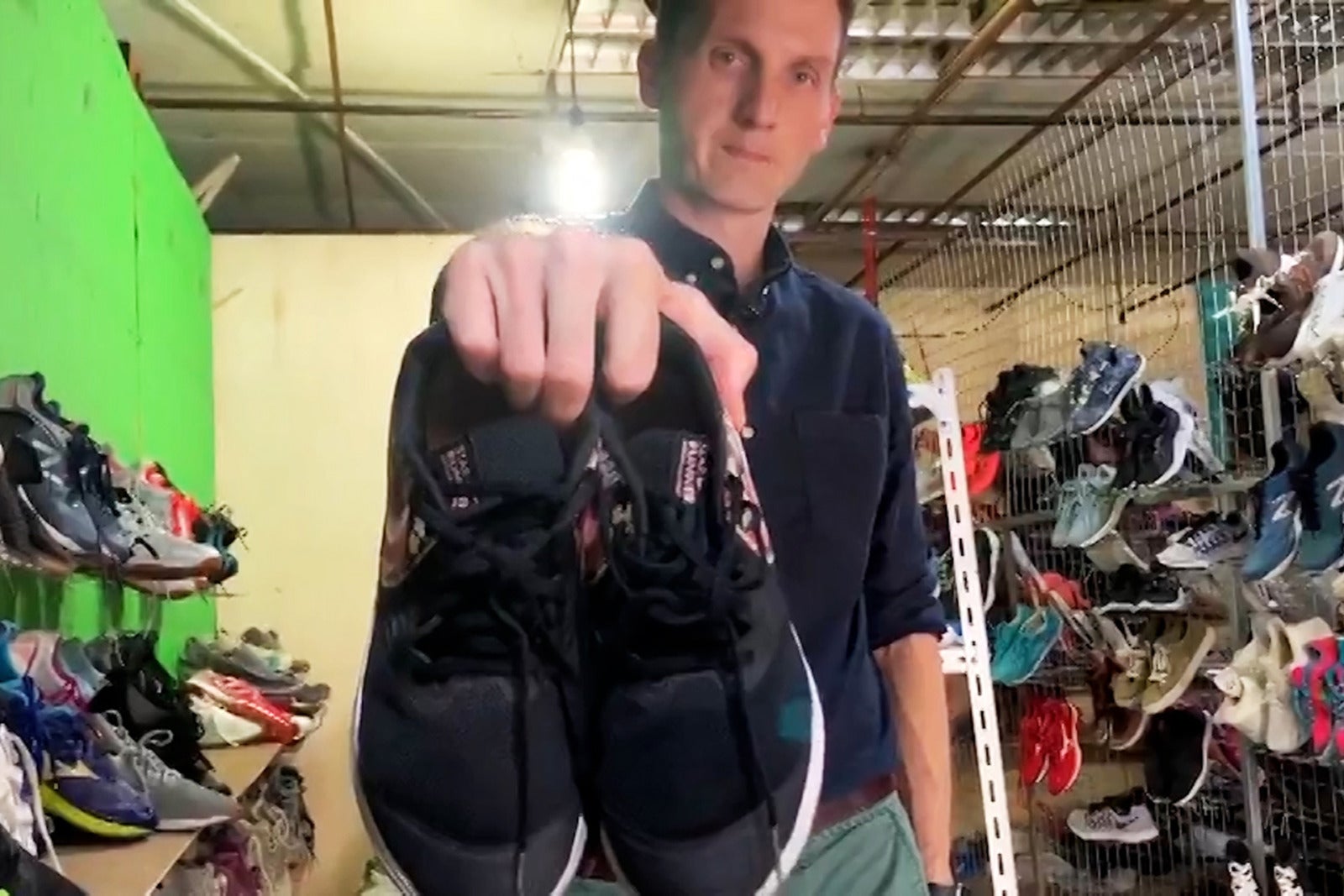
While the sample was small, Reuters notes that the fact that none of these shoes made it to a Singapore recycling facility underscores weaknesses in the system.
Dow told Reuters the Singapore shoe project was making progress. A sports facility under construction in Jurong, a district in western Singapore, will use recycled shoe material in its surfaces, Dow said in its January statement.
Dow and its partners declined to say how many of the shoes collected during the pilot phase had gone on to be recycled, nor would they provide those figures for the countrywide rollout. They did not explain what procedures were in place to ensure that donated shoes weren’t exported, diverted for resale, or pilfered from bins.
Reuters reported that the donated shoes that ended up in Indonesia have added to a flood of illegal second-hand clothing pouring into that developing country.
No response have been issued over the report by Reuters.
Also read: 6 Rubbish Bins Inside Interceptor on Klang River Filled Up Within 2 & A Half Hours

